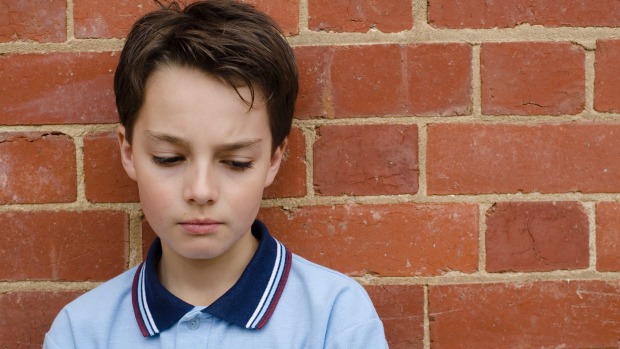
Dear mamas in the schoolyard, I want to write you this letter in the hope that it may help you to understand.
I am writing it on behalf of the mother of the child who has a behaviour issue. The one who who's child may be in your child's classroom. The one who's child may at times be disruptive and need lots of attention from the teacher. The one that no doubt, the whole year level will already know about!
Did you know that this mother has probably cried an ocean of tears for her child? She has probably been through more than you or I could ever imagine. Maybe her child has a formal diagnosis like Autism or ADHD, but that really shouldn't matter anyway. Maybe she is still grieving for the fact that her child will face so many more challenges in their life than yours.
She is still a mother, like you and I, who just always wants the very best for her child.
Did you know that she hears your whispers and feels your disapproving looks? She knows all too well that you do not want your child to interact with hers in any way because of their behaviour.
Did you know that she holds her child tightly as they sob because they have yet again not been invited to a party that you are hosting? Later that night when they are fast asleep, she also cries with sadness for her child and a pain in her heart that she cannot make go away.
Did you now that most days she holds her phone close and is filled with anxiety as she expects the school to call and say that there has been yet another incident at school with her child. She can't relax and enjoy the time to herself.
You probably couldn't know that by now she has very little friends in her life anymore. Having a child with such high needs has meant many appointments, social skills groups and therapies. It has also meant she is left exhausted and wiped out each and every day, and barely has enough energy for her husband, let alone even attempting to reach out to one of her few friends left who understand.
And if you took the time to actually get to know her she might share with you that even members of her own family make her feel like it is her fault. That she is a bad parent and responsible for her child's behaviour. Most events or outings that she attempts often end in disaster. People have stopped inviting them now.
It will probably break your heart to hear that she has had to seek therapy and medication to cope with the stresses of her daily life. And in her darkest hours she has contemplated leaving this world behind.
I want to also let you know that your child cannot catch a behaviour issue from being associated with this family. They do not have a contagious disease.
What you and your child can learn by being friends with them is a very valuable lesson in life. You can teach your child how to have empathy and compassion for other individuals who have challenges. You can teach your child to lead the way in showing kindness and acceptance to the children who need it most. You can do this by leading by example.
That lovely mother needs more than anyone else in your life – a friend. Someone to listen to her and show support, without judgment. Even just a simple smile or hello could lift her spirits immensely. We teach our students that 'excluding' is a form of bullying, yet other parents seem to do this to each other all of the time.
Yes there may be times when you are together that issues may arise, but you can handle that. You are after all, a mother - and together women are a force to be reckoned with!
Love Chrissie. xx
Chrissie Davies is an educator, consultant, writer, loving mama via an open adoption, and passionate advocate for understanding children with challenging behaviours. Through her consultancy Chaos to Calm, Chrissie specialises in creating understandings and strategies to meet the needs of children with challenging behaviours. She supports both families and teachers to create more awareness of the different ways to use communication and emotional engagement to make positive changes in children's behaviour.